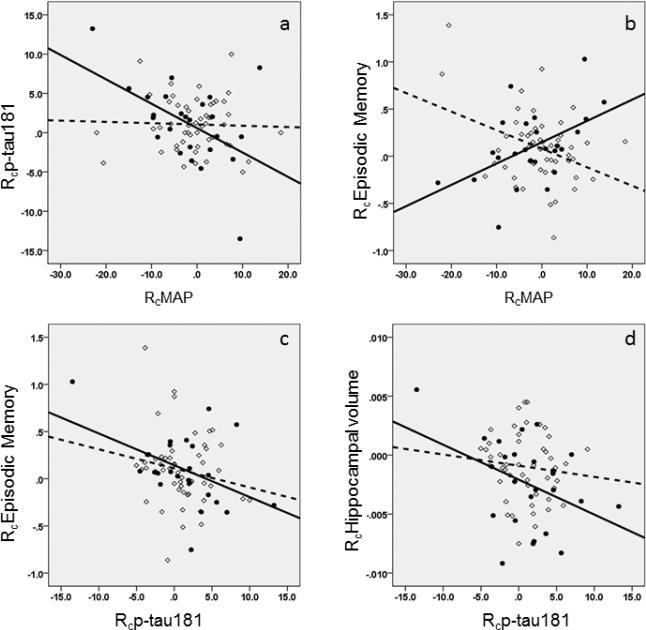In hypertension, cerebral blood flow (CBF) regulation limits are changed, and the threshold for blood pressure (BP) at which perfusion is safely maintained is higher. This shift may increase the brain's vulnerability to lower blood pressure in subjects with vascular disease. We found that, in hypertensive subjects over 60, but not in their normotensive peers, a longitudinal decrease in mean arterial pressure was related to memory decline and an increase in p-tau181 (a marker of neurofibrillary pathology). Our findings suggest that the hypertensive group may be sensitive to BP reductions.
Full Caption: Relationships between rates of change in mean arterial pressure (RcMAP) and p-tau181 (Rcp-tau181). (a) Rates of change in MAP and episodic verbal memory (RcEpisodic memory). (b) Rates of change in episodic verbal memory and p-tau181. (c) Rates of change in p-tau181 and hippocampal volume (RcHippocampal volume). (d). Solid circles and solid lines – subjects with hypertension (HTN). Diamonds and dashed lines - subjects without HTN. Scale units represent units per year: for p-tau pg/mL/year, for MAP mmHg/year, for episodic memory z-score unit/year, for hippocampal atrophy % of intracranial volume/year.


